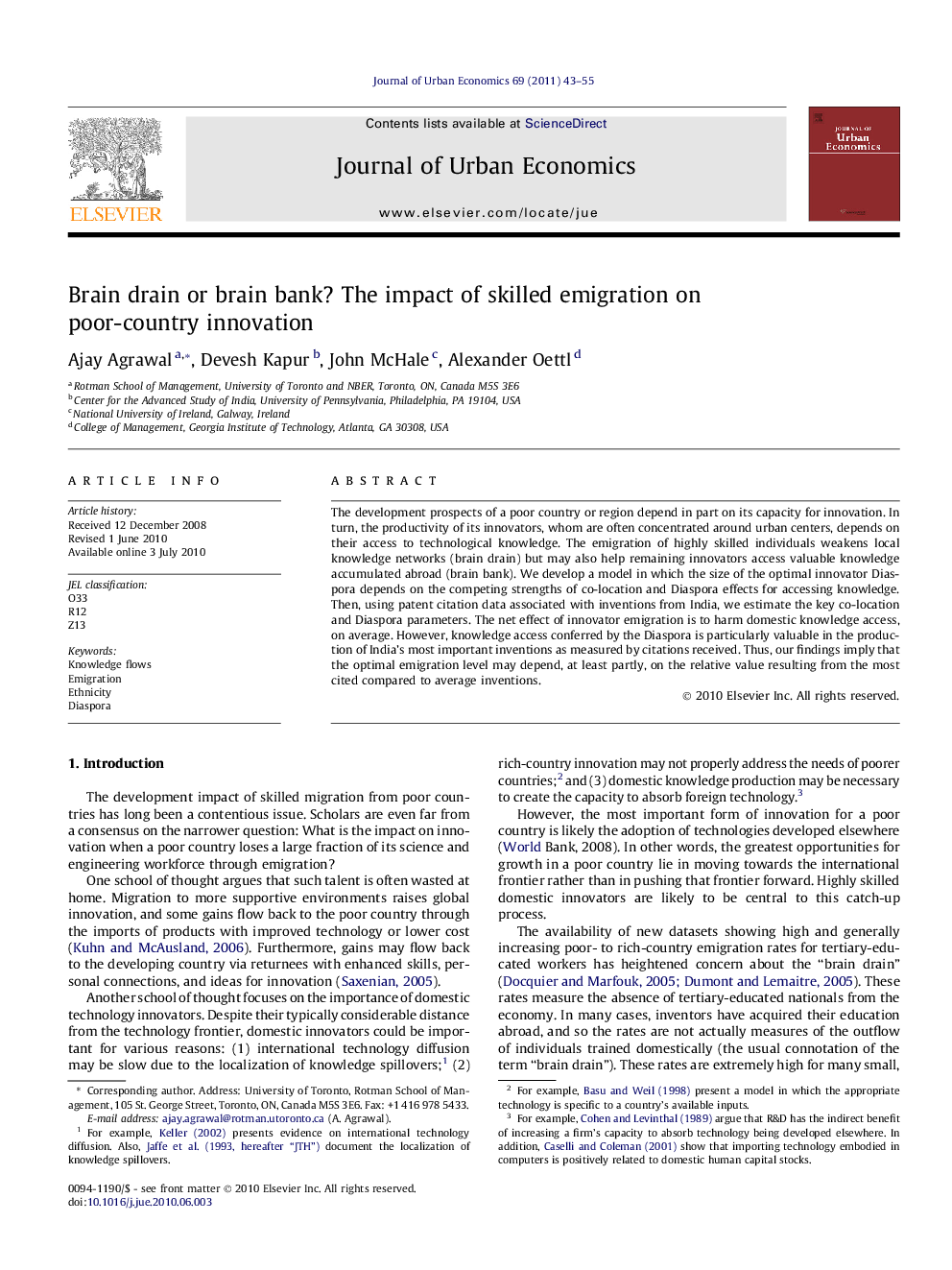| Article ID | Journal | Published Year | Pages | File Type |
|---|---|---|---|---|
| 970890 | Journal of Urban Economics | 2011 | 13 Pages |
The development prospects of a poor country or region depend in part on its capacity for innovation. In turn, the productivity of its innovators, whom are often concentrated around urban centers, depends on their access to technological knowledge. The emigration of highly skilled individuals weakens local knowledge networks (brain drain) but may also help remaining innovators access valuable knowledge accumulated abroad (brain bank). We develop a model in which the size of the optimal innovator Diaspora depends on the competing strengths of co-location and Diaspora effects for accessing knowledge. Then, using patent citation data associated with inventions from India, we estimate the key co-location and Diaspora parameters. The net effect of innovator emigration is to harm domestic knowledge access, on average. However, knowledge access conferred by the Diaspora is particularly valuable in the production of India’s most important inventions as measured by citations received. Thus, our findings imply that the optimal emigration level may depend, at least partly, on the relative value resulting from the most cited compared to average inventions.
